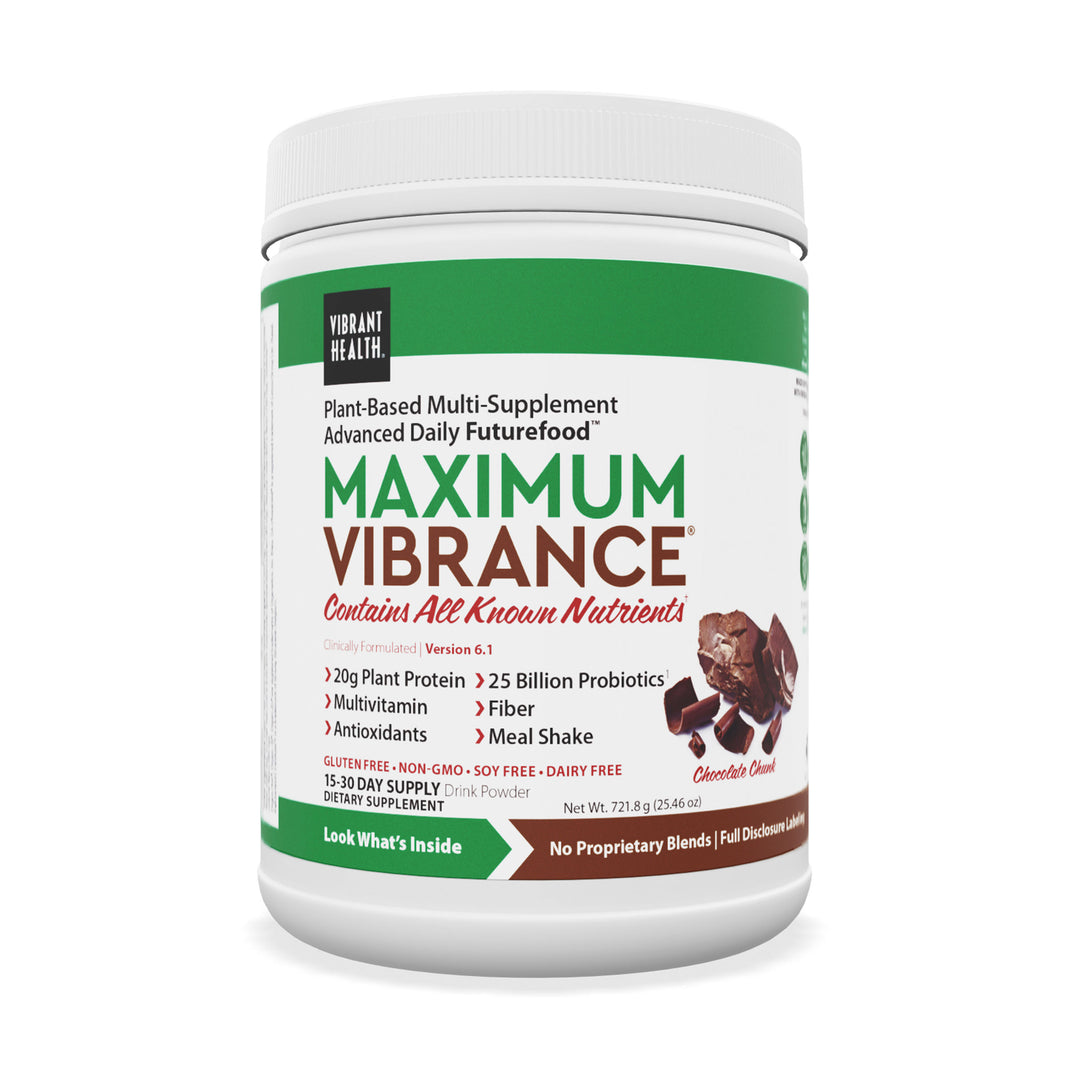B12 deficiency is a silent but dangerous epidemic that lurks largely under the radar, often dismissed or simply missed by healthcare providers. Yet, its consequences can be dire. This article cuts through the silence, aiming to inform health enthusiasts, vegetarians, vegans, and the aging population – those most at risk – about the crucial importance of B12 testing in safeguarding their health.
Understanding B12 Deficiency
Cobalamin, more commonly known as Vitamin B12, plays a myriad of essential roles within the human body, functioning as a cornerstone for several critical physiological processes. It is absolutely crucial for the formation of red blood cells (1), a key component of the circulatory system, ensuring oxygen is efficiently transported throughout the body. Moreover, Vitamin B12 plays a pivotal role in neurological function, supporting the health of nerve cells (2) and facilitating the production of neurotransmitters (3), which are vital for communication within the brain. Additionally, it contributes significantly to DNA synthesis (4) – a vital cog in the cellular machinery that underpins life itself, by aiding in the creation and maintenance of genetic material in every cell of the body.
Signs of Vitamin B12 Deficiency
Despite the critical roles Vitamin B12 plays, deficiency in this essential nutrient is surprisingly under diagnosed, often presenting with non-specific symptoms that can easily be overlooked or mistaken for other conditions.
These symptoms (5) include:
- fatigue,
- a pervasive sense of weakness,
- pins and needles,
- psychological problems such as depression and/or anxiety,
- lightheadedness,
- shortness of breath,
- pale or jaundiced skin,
- sensory neuropathy such as numbness or tingling,
- difficulty walking,
- memory loss or cognitive difficulties,
which can severely impact the daily lives of affected individuals.
The non-specific nature of these symptoms underpins the challenge in detecting Vitamin B12 deficiency – they are often mistaken for more common ailments such as the flu or general tiredness, leading to a delayed or entirely missed diagnosis.
This oversight can have dire consequences, resulting in adverse neurological and cognitive outcomes for the patient. Long-term deficiency can lead to significant health issues, including irreversible nerve damage and cognitive impairments (6), highlighting the importance of early detection and treatment.
Risk Factors for B12 Deficiency
The situation is further complicated by the intricate fact that specific populations are at a significantly higher risk of developing a B12 deficiency. This includes vegetarians, who may not consume enough B12-rich foods like meat and dairy; the elderly, whose ability to absorb vitamins decreases with age; and those suffering from certain gastrointestinal disorders. Conditions such as reduced stomach acid are particularly concerning, as they can severely impair the body's capacity to effectively absorb B12 from food sources.
This situation highlights an urgent need for increased awareness and proactive screening for Vitamin B12 levels, especially among these at-risk groups. Implementing such measures is crucial to ensure timely medical intervention and to prevent the potentially severe long-term health consequences that stem from this deficiency, including neurological damage and blood diseases. Establishing a routine check-up for Vitamin B12 levels could serve as a critical step towards safeguarding the health and wellbeing of these vulnerable populations.
The Challenge: When B12 Deficiency Goes Unnoticed
The challenge in diagnosing B12 deficiency lies in its symptomatology but also, more subtly, in the pitfalls of conventional healthcare systems. Misconceptions about the prevalence of B12 deficiency among certain populations, a lack of routine testing, and even the sensitivity of available testing can lead to missed diagnoses.
Medical Hurdles to B12 Diagnosis
General practitioners, serving as the primary entry point to the healthcare system for numerous patients, frequently either overlook the importance of B12 testing or are not fully aware of the subtle symptoms that might suggest a deficiency. This oversight can lead to a delay in diagnosis and treatment for conditions related to vitamin B12 deficiency, which is essential for nerve function, red blood cell production, and DNA synthesis.
Empowering Individuals: Self-Testing for B12 Deficiency
The advent of at-home testing presents a pivotal solution for those who suspect they may be deficient in B12. It is a game-changer, offering the power of self-based health maintenance to the individual, liberating them from the potential gatekeeping of traditional healthcare providers.
The Rise of At-Home B12 Test Kits
At-home B12 tests are now available commercially, offering a snapshot of B12 levels without the need for a healthcare practitioner's prescription. By extracting a small blood sample and sending it to a laboratory, individuals can acquire insight into their B12 status. These tests have been shown to be accurate and can offer the peace of mind that early detection brings.
Beyond Testing: Preventing and Treating B12 Deficiency
Prevention is always better than cure, and in the case of B12 deficiency, it’s especially true given the significant neurological consequences that can arise from prolonged deficiency. For those at risk, it is important to be vigilant and proactive in managing B12 levels.
Dietary and Lifestyle Interventions

Animal-based foods are the primary sources of vitamin B12, including beef, liver, chicken, fish, shellfish, eggs, and dairy products (7). Among these, shellfish and liver are particularly high in B12. Since plant based foods do not contain any B12, vegans and vegetarians or those who wish to limit their intake of animal products, such as those adhering to a vegan diet, fortified foods offer an alternative source of this vital nutrient. These include fortified cereals, plant-based milk, and some nutritional yeast products.
For vegans and some vegetarians who eliminate or significantly limit their intake of animal products, supplementation becomes a crucial aspect of maintaining adequate B12 levels. There are four types of vitamin B12 supplements available: cyanocobalamin, methylcobalamin, hydroxocobalamin, and adenosylcobalamin. Of these, methylcobalamin and adenosylcobalamin are considered the most bioavailable forms, meaning they are more readily absorbed and utilised by the body. Cyanocobalamin, a synthetic form, is the most common and affordable option but must be converted by the body into a usable form. Hydroxocobalamin is a form naturally found in food and has a longer retention time in the body. Given the diversity of supplements available, individuals can select a form that best aligns with their health needs and dietary preferences, ensuring they can adequately prevent B12 deficiency. But methylcobalmin is considered the most bioavailable, meaning easiest for the body to absorb.
For those over 50, or with gastrointestinal disorders, routine supplementation may also be necessary. Ensuring a balanced and diverse diet is fundamental to everyone to avoid a vitamin B12 deficiency, however, as vitamin B12 is only found in natural form from animal sources.
Maximising Absorption of Vitamin B12
Consuming meals that are rich in folate, vitamin B6, and vitamin C alongside B12 sources can enhance absorption of B12, as these nutrients work synergistically. For example, a meal combining salmon (a rich source of B12) with a side of leafy greens (high in folate) and a citrus fruit dessert (rich in vitamin C) can be an effective strategy.
Medical Intervention and Available Treatments
In severe cases of B12 deficiency, medical intervention is imperative. This usually involves high-dose B12 injections given at regular intervals to restore the body's levels. After that, maintenance doses are recommended according to the diagnosis and ongoing monitoring of symptoms and levels.
The Call to Test Regularly for Vitamin B12 Deficiency
The message is clear: Understanding the importance of vitamin B12 for health and taking proactive steps to maintain optimal levels are crucial for health practitioners worldwide and anyone focused on their well-being. This includes being proactive, even without a doctor's recommendation, to test and ensure that vitamin B12 levels are sufficient, especially for those at higher risk.
Self-testing represents a powerful move towards taking control of your health and preventing the often-overlooked threat of vitamin B12 deficiency. It signifies a proactive approach to personal health management, crucial in today's world, where diet and lifestyle pose unique challenges. This approach is beneficial for everyone, regardless of dietary preferences like vegetarianism or veganism.
In essence, when it comes to vitamin B12, it’s about empowering yourself to manage your health proactively and equipping yourself with a comprehensive toolkit for personal health management, ensuring a path toward better health and well-being.
Written by Amy Morris, BSc (Hons) Nutritional Therapy. Amy has been a nutritional therapist for 12 years, specialising in recent years as a functional medicine nutritional therapist. Women’s health, and pre-diabetes and type 2 diabetes prevention are Amy’s specialist areas. Diagnosed with a chronic condition called endometriosis at age 20, this is what motivated Amy to study nutrition. Amy has been in remission for 6 years now, attributing powerful nutrition, lifestyle and bio-identical hormone strategies she now shares with her clients.
Water for Health Ltd began trading in 2007 with the goal of positively affecting the lives of many. We still retain that mission because we believe that proper hydration and nutrition can make a massive difference to people’s health and quality of life. Click here to find out more.
References
1) ScienceDirect. (n.d.). Vitamin B12. Retrieved from https://www.sciencedirect.com/topics/biochemistry-genetics-and-molecular-biology/vitamin-b12
2) Harvard Health Publishing. (2013, January 10). Vitamin B12 deficiency can be sneaky, harmful. Retrieved from https://www.health.harvard.edu/blog/vitamin-b12-deficiency-can-be-sneaky-harmful-201301105780
3) Valizadeh, M., & Valizadeh, N. (2011). Obsessive compulsive disorder as early manifestation of B12 deficiency. Indian journal of psychological medicine, 33(2), 203–204. https://doi.org/10.4103/0253-7176.92051
4) Halczuk, K., Kaźmierczak-Barańska, J., Karwowski, B. T., Karmańska, A., & Cieślak, M. (2023). Vitamin B12-Multifaceted In Vivo Functions and In Vitro Applications. Nutrients, 15(12), 2734. https://doi.org/10.3390/nu15122734
5) NHS. (n.d.). Symptoms of vitamin B12 or folate deficiency anaemia. Retrieved from https://www.nhs.uk/conditions/vitamin-b12-or-folate-deficiency-anaemia/symptoms/
6) WebMD. (n.d.). What if Vitamin B12 Deficiency Is Left Untreated? Retrieved from https://www.webmd.com/diet/b12-deficiency-left-untreated
7) Office of Dietary Supplements - National Institutes of Health. (n.d.). Vitamin B12. Retrieved from https://ods.od.nih.gov/factsheets/VitaminB12-HealthProfessional/




























Leave a comment